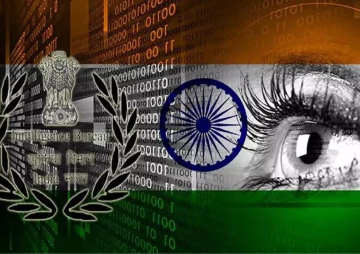Indo-US relations began to warm up after the fall of the Berlin Wall and the collapse of the Soviet Union. All of a sudden, the New World Order had arrived, yet no one really knew how to adjust to this new reality. Old enemies and old friends had gone, new enemies, threats and friends had to be found - for a State, to survive, needs all three. In Asia, China and India were rising - one dictatorial but market savvy and the other democratic but market-innocent. There were roadblocks along the way but India and the US seemed keen to find ways around them. However, the US dilemma was how to treat China - a future military opponent, a market opportunity or as a competitor in the new global economic system? India's strategic relevance would be in the context of how China was to be perceived.
Strategists in the US have consistently favoured global military supremacy. The Defence Policy Guidance of 1992, prepared under the guidance of Paul Wolfowitz, merely stated the obvious when it said that the first objective was to prevent the re-emergence of a new rival who would pose the kind of threat as had been posed by the former Soviet Union. Therefore, the US would have "to prevent any hostile power from dominating a region whose resources would, under consolidated control, be sufficient to generate global power".
This desire for global supremacy is not a neo-con mindset alone; it is mainstream American - Republican or Democrat - and it is immutable. Clinton's Pentagon talked of 'full-spectrum dominance', his successor has talked of 'pre-emptive unilateralism' and his may-have-been-successor Kerry would've talked of 'muscular internationalism'.
Zbigniew Brzezinski, Jimmy Carter's National Security advisor, had said in 1997 that economic subjugation of the Soviet Union and the control of Central Asia and the Middle East were US priorities. According to Brzezinski, "the three grand imperatives of the imperial geo-strategy are to prevent collusion and maintain security-dependence amo-ng the vassals, to keep tributaries pliant and protected and to keep the barbarians from coming together." Whether a country is a vassal, a tributary or a barbarian largely depends on how a country wants to be treated. Better a barbarian than a vassal.
George Bush had barely settled down in his first term when 9/11 happened. This event was not scripted and the plot went haywire. The entire first presidency was spent fighting invisible foes and costly wars with no attention to critical long-term strategic interests of the country. The military-industrial complex was getting restive. While the global war on terror gave the US opportunities to move into Central and West Asia, Pakistan and Afghanistan, it relied essentially on small-budget (in American terms) force options and equipment. The other major strategic rival, competitor and adversary, China, had to be countered with state-of-the-art sophisticated military. Alliances had to be strengthened or put in place.
The year 2005 was China's year. The US and Japan signed an official declaration in February calling for enhanced security ties. Beijing saw red, particularly in the reference to Taiwan and the possibility that US-Japan would encourage a peaceful solution. Later in June at the Singapore security conference, Defence Secretary Rumsfeld referred to China's expansion of its missile capability allowing them to reach many areas of the world - and went on to say China was not threatened by any other nation. The Chinese were not amused. The Pentagon report on Chinese combat capabilities that followed in July assessed that the Chinese had developed a capability to operate beyond the Taiwan Straits and that this constituted a challenge to global order. Once again, the Chinese were livid and said so. The testimony of Admiral William Fallon, Commander, Pacific Command in March 2005, that Indian and American security interests' continued military cooperation would lead to a stronger strategic partnership, would not have been lost on the Chinese.
The July 18 US-India agreement on civilian nuclear energy would have convinced the Chinese that India was now part of the American ring around China. The Chinese offer of civilian nuclear reactors to Pakistan is a counter to this and the recent offer by Pervez Musharraf to provide a link between Xinjiang and the Gulf through Gwadar is only stating the known - Pakistan has become useful real estate for anyone willing to pay the rent. China has worked to keep India restricted to the subcontinent and India's neighbours have sought alliances with China.
While the US may continue to sell automobiles, aircraft and sophisticated manufactured goods to China and import cheap durables, and also let China buy US debt through Treasury Bonds, one can see a costly Asian Cold War looming as the two struggle for supremacy in the energy-rich West and Central Asia.
An economically rich China is not only in a better position to arm itself but also needs to buy larger quantities of oil and gas to sustain its economic and military growth. By 2020, China will need to import 9 million barrels and the US would need to import 16 million barrels from imports. What is worse, the Chinese would try and get this from wherever possible including from some 'problem' countries like Iran, Sudan and Venezuela (this applies to India also, but we are probably considered more manageable). If production does not keep pace, as it is not expected to, fierce competition between the two giants - for energy and military supremacy - is inevitable.
Bush's speech to the Asia Society prior to his departure sets the tone of his visit. The US will make the rules on the nuclear game and either we play it their way or count ourselves out. India has to be credible, transparent and have a defensible plan that will satisfy the US Congress. Transparent with the Americans and opaque with the Indians? Boldness, therefore, lies in acquiescence.
The other offer to India is joint promotion of democracy globally. Surely, this will mean democracy not just in Mali or North Korea but also Myanmar and China? Are we prepared for this? Considering that recent attempts by the US to impose democracy through the barrel of a gun have been messy and costly, it may be prudent not to get become someone else's Sancho Panzas.
What we should be doing is to engage corporate US with corporate India. This will keep our strategic interests separate from business and investment. The Chinese and the Americans trade and invest feverishly with each other but they have kept their strategic goals separate. Instead, we tied our strategic interests first, hoping that these would lead to better economic relations.
Whether India will ever catch up with China is not important. What is important is whether democratic India can give its citizens a better quality of life, knowing that it'll take more than a century to catch up with the West in per capita GDP or quality of life? What is important is whether China can continue to grow economically if it gives its citizens the kind of democracy, however flawed, or the kind of freedoms, however irresponsible, we have in India.
Finally, all this is academic if we listen to environmentalists who say that two planets are needed if the Indian and Chinese economies continue to grow at the rate they are growing today, and the US continues to consume and pollute the way it is doing today.
The author is Advisor to Chairman, Observer Research Foundation, New Delhi.
Source: Hindustan Times, New Delhi, February 28, 2006. * Views expressed in this article are those of the author and do not necessarily reflect those of Observer Research Foundation.
The views expressed above belong to the author(s). ORF research and analyses now available on Telegram! Click here to access our curated content — blogs, longforms and interviews.




 PREV
PREV


